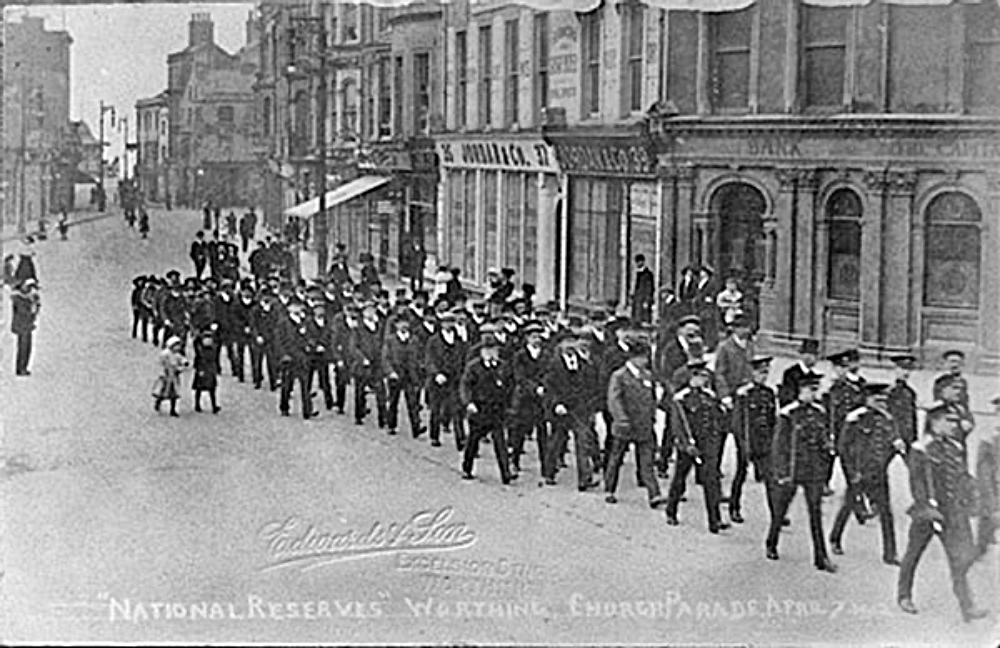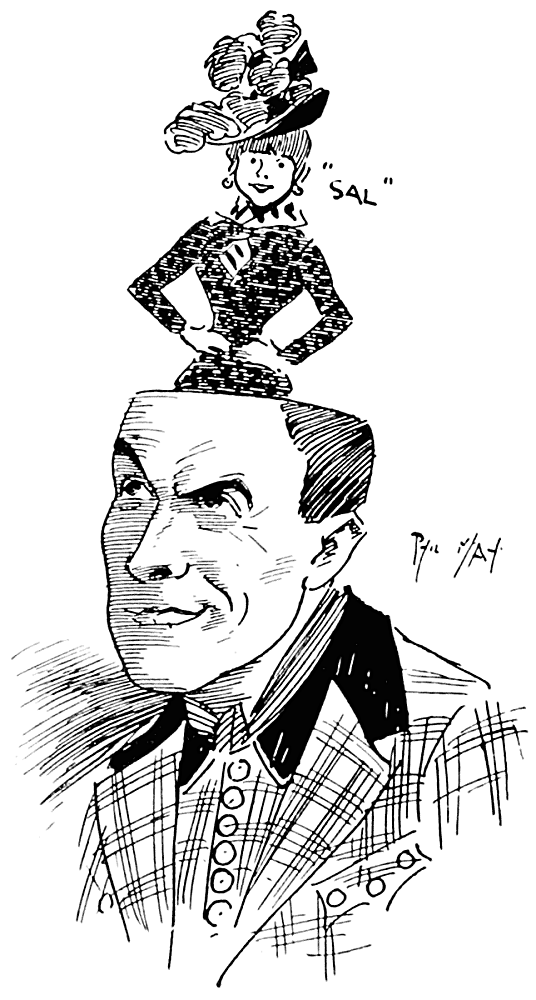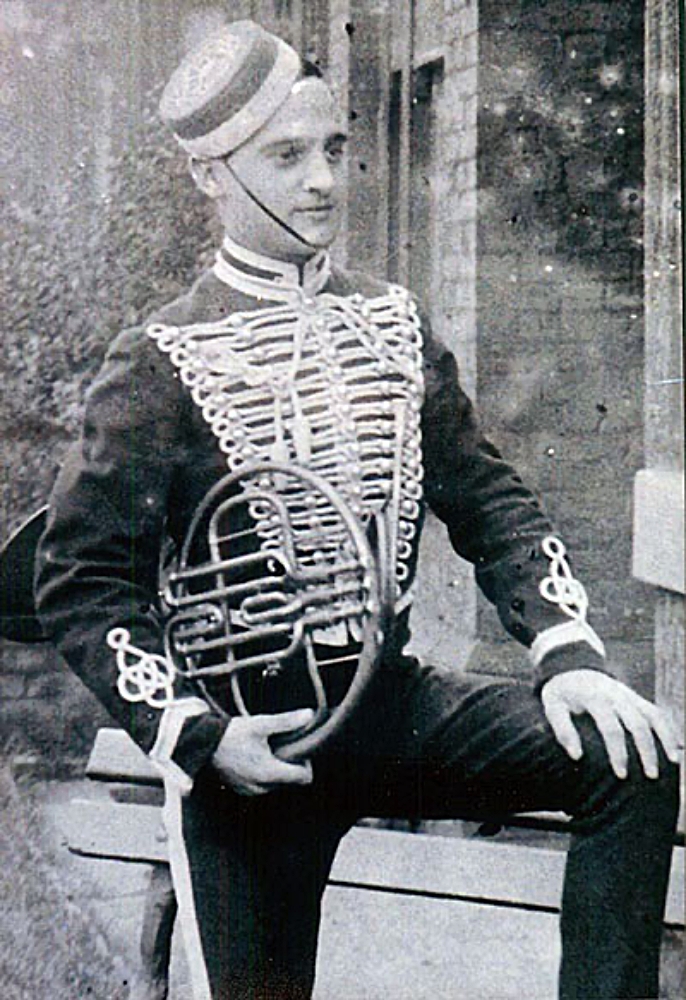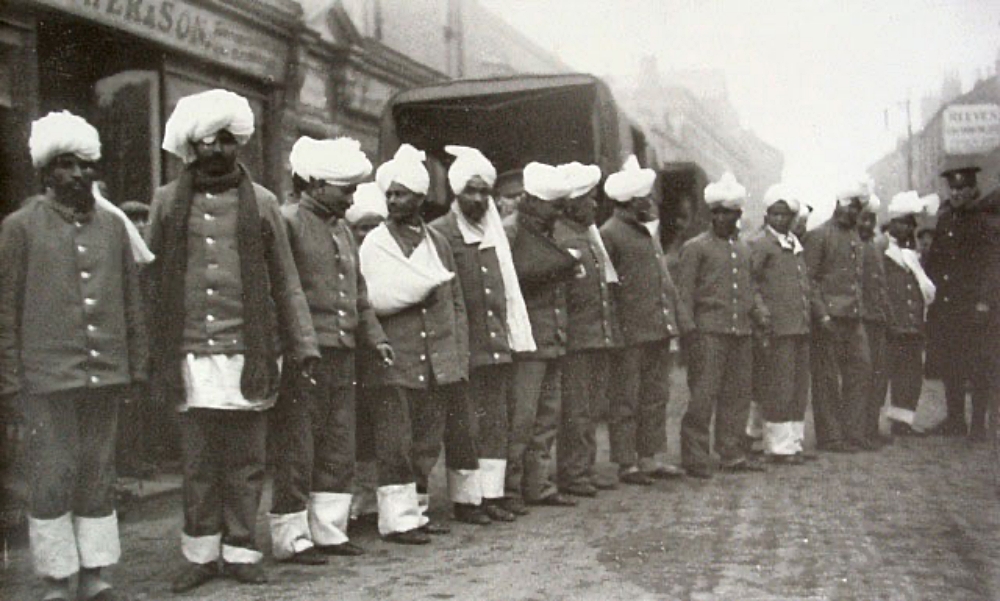The year WWI broke out
IT was the August Bank Holiday that history will never forget. It also turned out to be the busiest one-day holiday in Worthing’s history. But most significantly, August 3, 1914 was the Monday on which the world changed for ever.

WE’VE all heard people complain that `There’s never anything to do in Worthing,’ but there was so much entertainment on offer in Worthing during the first week of August, 1914, that from this distance it seems amazing how they fitted it all in!
On the Pier, for example, the Royal Navy Ladies Orchestra was playing every weekday and giving promenade concerts on Monday, Wednesday and Saturday at 8.30pm.
The Wedgewoods Concert Party was also performing on the Pier three times daily. In the open air at 11.30am and 3.15pm (seats three pence) and in the Pavilion each evening at 8pm. For the latter performance, seats – including Pier toll – cost one shilling reserved but only sixpence or three pence if you were willing to take a chance.

Thursday night that week there was a very special treat – Mr Albert Chevalier’s Recitals, in which the internationally renowned performer presented a selection from his well-known songs and character impersonations.
Bathing from the pier head was an exciting highlight for the most adventurous of Worthing’s 1914 youngsters. When the tide was suitable, they happily rushed to part with four pence of their hard-earned pocket money (it included two pence toll to get onto the Pier) in return for the thrill of leaping off the end of the structure into the English Channel.
And what value they could get that evening, snuggling with their best friend in the back row of The Picturedrome Cinema in Chapel Road to watch a programme of no less than eight silent films for just three pence in old money, complete with piano accompaniment!
There was more. Just a couple of hundred yards away, in Montague Street, Shanley’s Cinema, in the Winter Hall, was providing stiff competition with continuous performances of two films (changed daily), with three films on Saturdays, plus the biggest attraction to hit the silent silver screen that year, News of the World in Pictures. Seats cost three pence, sixpence or a shilling, with smoking allowed.
`Please note’ (added a poster in front of the rather dreary Victorian building) `we offer an entire change of over 3,000 feet of picturly.es dai This theatre has been entirely reseated and is thoroughly cleaned night and day by a powerful vacuum cleaner.’

If you’ve ever put a lighted match to a reel of early movie film you’ll appreciate why the more safety conscious residents of those days may have preferred the seafront Kursaal Cinema (later The Dome) when on Sunday’s from 6pm to 10.30pm they showed the latest non-inflammable films. Or was it because for the same ticket, costing three pence, sixpence or nine pence, audiences were also treated to a concert by the Macwhirter Orchestra and The Whimsies Concert Party?
In Steyne Gardens during that August Monday of 1914, the special Bank Holiday attractions included an illuminated promenade concert given by the Yorkshire Hussars Band (admission three pence).
In the grandly named West Beach Pagoda, opposite West Buildings, The Enterprising Cecilians staged a more sophisticated, if relatively riotous, programme incorporating a special tango night, singing competition and a spectacular carnival.
You’d be wrong if you thought that was all Worthing people had to entertain them during that fateful weekend. At the New Theatre Royal in Bath Place a new musical play, The Girl on the Film, had transferred directly from London’s Gaiety Theatre and there was the anticipation that it would be followed the next week by The Arcadians, `a great musical comedy as played for nearly three years at the Shaftsbury Theatre, London.
Traditionally, August Bank Holiday was a great day for sportsmen and this Monday was no exception. A grand open sports meeting was being staged in Homefield Park (“immense attractions’ and “a magnificent programme” promised) and at the Worthing Sports Ground a Grand Military Tournament starred the Rough Riders of the City of London Yeomanry and supporting athletic excitements included `tent pegging, dummy thrusting, a cockade fight, section jumping and a mounted football match.’
Just to emphasise the state that technology had reached by 1914, the Hudson Garage, in The Steyne, was offering for sale `silent Hudson and Oakland cars with electric self-starting, lighting and no starting handle, so particularly suitable for ladies.’

Little did the residents of Worthing enjoying this profusion of attractions on that fateful August Bank Holiday realise that a drama dwarfing anything they had ever known lay in store for them only 24 hours later; or that for those who survived the following four years, life would change out of all recognition.
With communication and the media in its infancy, the people of Worthing knew little of the shattering events that were unfolding elsewhere in Europe with bewildering speed over that fateful August Bank Holiday weekend.
That an emergency situation might be `in the wind’ was treated as hardly more than a rumour by most people in Worthing, though the few aware that the telegraph office at the central Post Office in Chapel Road had been kept open all through the night of Sunday August 2nd may have realised the `considerable gravity’ of a situation that was developing in other parts of Europe.
Certainly nothing deterred an unexpectedly large number of Bank Holiday day trippers making the journey to Worthing by train on the morning of August 3rd.
Yet by the following evening, August 4th, the whole of Europe would be in turmoil, the spike helmeted German army would be invading Belgium and as a direct result, Britain would have declared war in defence of that tiny ally.
Worthing’s main Post Office stayed opened all that night so that British Army reservists, who had been urgently summoned to their respective assembly depots, could collect the regulation allowances to which they were entitled on their way to battle.
By Wednesday August 5th a `black market’ had already taken over the distribution of petrol in Worthing because of the predicted shortage. Instead of the one-shilling-and-sixpence it had cost three days earlier some local dealers were now demanding more than one pound a gallon!
The City of London Yeomanry visiting Worthing with their band commandeered taxi cabs and private cars to rush back to their camp at Broadwater and marched out of town later the same day.
By now the First Great War was unstoppable and in the next four years over ten million people would perish – a greater toll in human life than had been suffered during any other conflict the world had ever known.